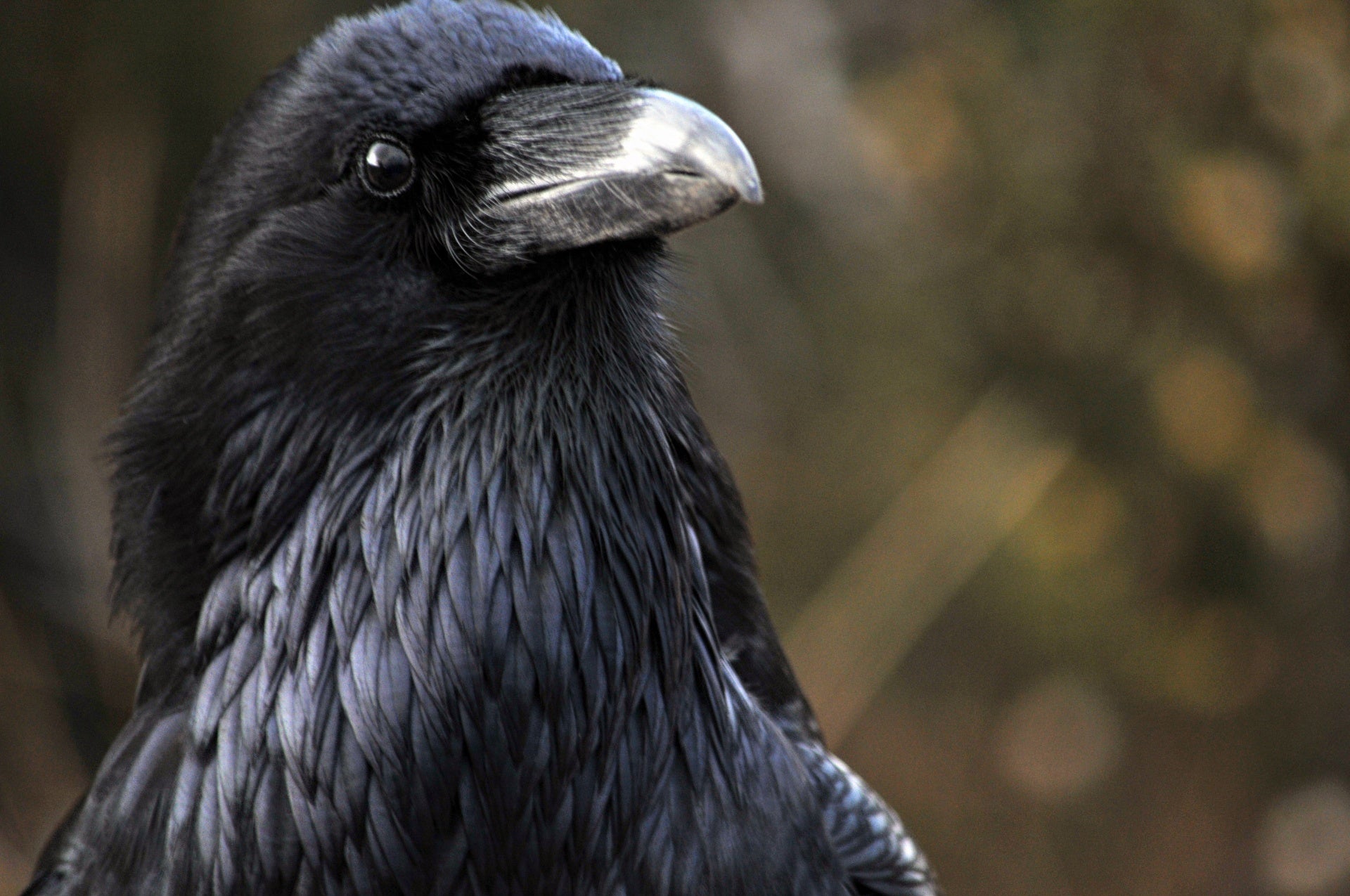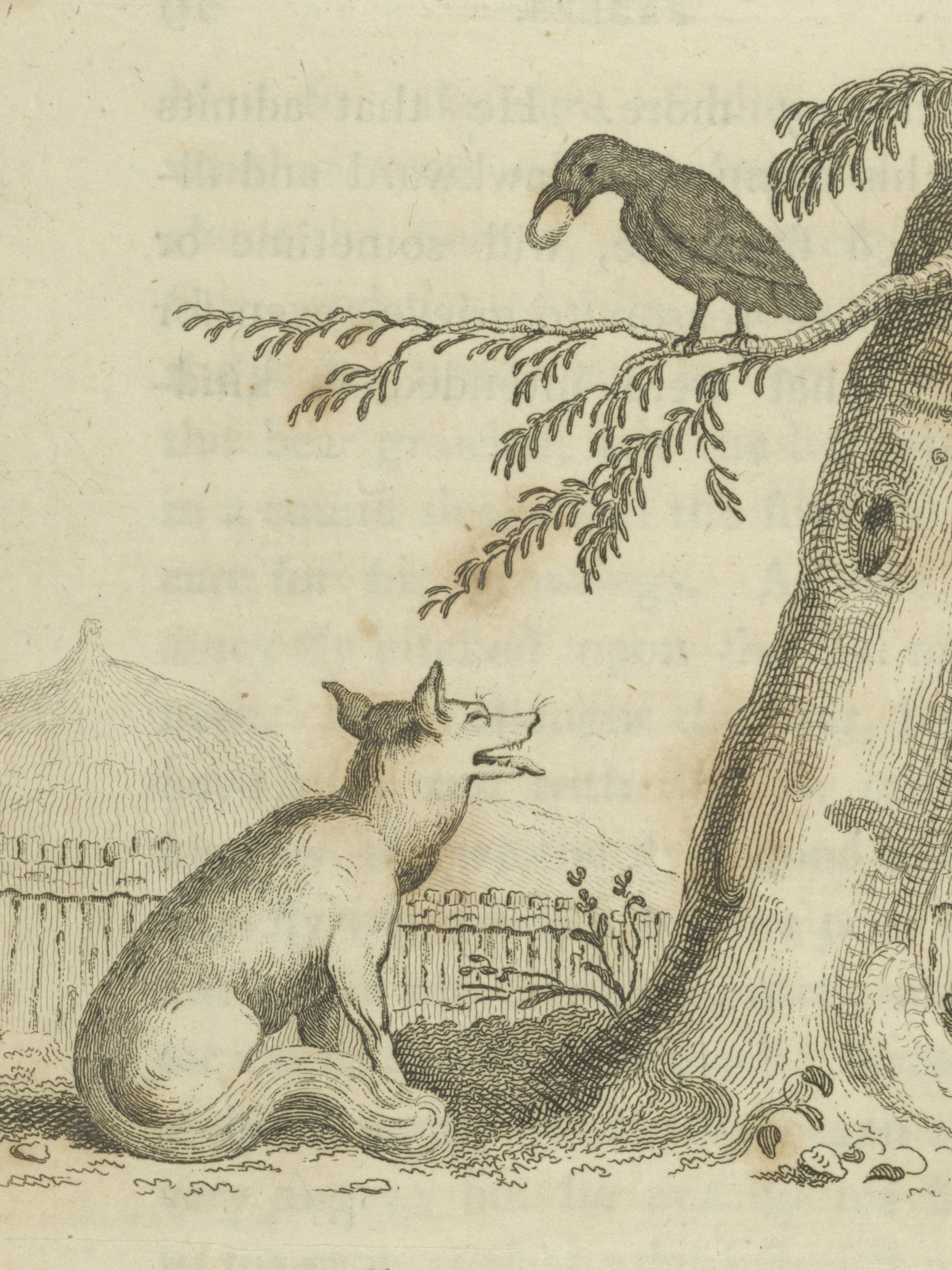When you cross a raven, the bird will hold a grudge
For over 2,000 years, children have been warned of the dangers of hidden agendas through the “The Fox and the Raven.” In the popular Aesop fable, a raven (in some tellings, a crow) is tricked into dropping a piece of cheese from its beak by a sly, charming fox who flatters the bird, asking it to speak or sing. When the raven obliges, the fox grabs the dislodged cheese and taunts its victim with some variation on “You have a great voice—but no brains.”


For over 2,000 years, children have been warned of the dangers of hidden agendas through the “The Fox and the Raven.” In the popular Aesop fable, a raven (in some tellings, a crow) is tricked into dropping a piece of cheese from its beak by a sly, charming fox who flatters the bird, asking it to speak or sing. When the raven obliges, the fox grabs the dislodged cheese and taunts its victim with some variation on “You have a great voice—but no brains.”
Now scientists have demonstrated that’s not entirely accurate. Ravens have brains, at least enough to remember when someone has cheated them out of something valuable. According to a study recently published in Animal Behavior, ravens learn to prefer trainers who have treated them fairly over those who have ripped them off, and can remember faces from the latter group for at least one month.
The paper’s authors, cognitive scientists in Vienna and Sweden, conducted their experiment by first training common ravens (Corvus corax) to trade pieces of bread, a low-value treat, for cheese, a more desirable or high-value reward that just happens to figure in the original parable. Whenever the bird gave the trainer a piece of bread, the trainer reciprocated with a morsel of cheese.

In a follow-up round of trades, however, the birds were subjected to “unfair” trainers, who would act as though the familiar bread-for-cheese deal was on, but then refuse to hand over their goods after taking the bird’s offering. Instead the trainer would eat the cheese, presumably with cold indifference, as the birds watched, presumably disgusted.
Of course, we don’t know what the birds were thinking as they witnessed the deal going sour. According to the study, however, they “appeared to react in a ‘frustrated’ way to the behavior of the unfair experimenter. They started vocalizing, showed increased activity, and cached or ate the remaining pieces of the low-quality reward.”
This response is similar, but much more reserved, than what scientists saw in capuchin monkeys who were exposed to unequal pay in a 2003 lab experiment. In that case, when one group of capuchins saw scientists rewarding other capuchins with juicy grapes, while they were given cucumbers for the same task, they retaliated by throwing their cucumbers back at the scientists.
As for the ravens, the researchers checked back in with their winged subjects two days and then again one month after their original encounters. In both cases, the ravens who previously dealt with the devious researchers demonstrated that they preferred the people who had followed the established rules over those who had eaten the cheese by choosing to interact with the cooperative humans more often.
Prior to this research, scientists knew that ravens—like monkeys, sheep, crows, and honeybees —could remember human faces. And American crows had also been shown to recognize dangerous crow-trapping humans years after their initial single encounter, the authors explain in the study. (The American crows and the common raven both belong to the genus Corvus.) It was unknown, however, whether ravens had a similar capacity: could they extend their ability to remember a human face they encountered during a one-time event that involved reciprocity?
The study was only long enough for the scientists to determine that the ravens could hold onto the useful information for at least a month. It’s possible their grudges or approval ratings linger much longer. What they could not tease out, as they also explain, was whether the birds have episodic memory, like humans and primates, or if their responses to unfair humans were part of their instinctual behavior, perhaps related to an associated emotion, like fear, rather than a stored memory they had formed of an actual event.
In the wild, ravens are known to develop networks of allies and to keep track of rivals. They can also remember the dynamics between ravens they have merely observed. Aware of their subjects’ eye for insight as a third-party observer (of fellow birds), the scientists chose to investigate whether ravens that had witnessed other ravens being hustled would also make a mental note (whatever that would mean in a corvid) about which humans to trust or not. Statistically speaking, the birds failed this memory test. Notably, however, those ravens who had first-hand experience of being conned by other trainers were slightly more likely to recognize the scoundrels in the group they had only observed. Witnessing another bird get cheated, at least in some cases, appeared to reopen their own wounds.